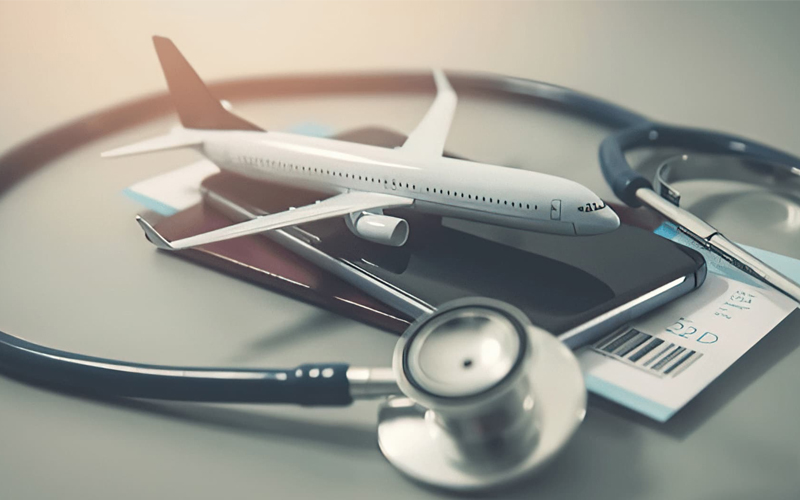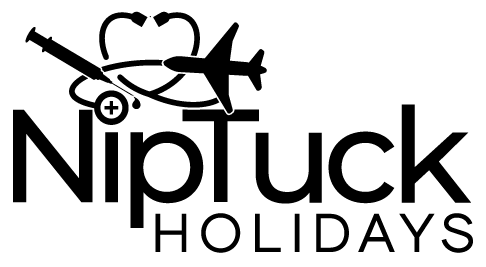As the post-Covid gloom lifts, Malaysia’s health tourism industry is showing signs of a forceful revival. And NipTuck Holidays is more than ready to support our new partners in this revival!
Malaysia has built a strong reputation as a reliable and trusted global destination for healthcare travellers over the past 10 years and is ranked among the top medical tourism destinations in Asia, alongside India, Thailand, Singapore and South Korea.
Association of Private Hospitals president Kuljit Singh said Malaysia is one of the most competitive destinations in Southeast Asia in terms of cost and standards of healthcare.
Malaysia Healthcare Travel Council (MHTC) CEO Daud Arif said Malaysia’s healthcare system has been internationally recognised and has garnered numerous global accolades over the years.

Healthcare travel industry blueprint
Guided by the Malaysia Healthcare Travel Industry Blueprint 2021-2025, measures had been put in place during the initial post-Covid “recovery” phase to ensure a smoother transition to the “rebuild” phase.
“We are now in a solid position to embark on the next phase of the Malaysia Healthcare Travel Industry Blueprint in 2023 to rebuild the industry, whilst enhancing service delivery and experience for all healthcare travellers.

“We are on course for continuous and sustainable industry growth, leveraging our strengths on three key pillars,” he said.
The three pillars of the healthcare travel ecosystem focuses on:
i) enhancing service quality and experience of care;
ii) increasing brand cohesiveness across key touch points and amplifying our brand equity in core markets; and
iii) growing beyond primary markets and exploring more niche markets to strengthen our presence.
MHTC aims for greater collaboration with industry stakeholders both local and global to create greater value for the entire industry.
“The rebuild phase will also see the industry driving forward with a focus on both curative and preventive treatments as well as several branding initiatives that strive to invite healthcare travellers to experience and rediscover the very best of healthcare in Malaysia,” Daud said.
Leveraging the demand for niche treatments and its excellent track record, MHTC aims to continue developing existing offerings which include preventive healthcare and wellness.

Malaysia’s health tourism industry looks set to rebound.
Health tourism derailed by Covid-19
However, he noted Malaysia saw significant declines in healthcare travel revenue from RM1.7 billion in 2019 to RM777 million and RM585 million in 2020 and 2021 respectively, due to the Covid-19 pandemic.
“However, the industry’s swift response to the pandemic has led to fruitful results. Anchoring heavily on public-private partnerships (PPPs), our success as a destination has been an all-industry effort.
“Together, we have cultivated a solid ecosystem, further positioning Malaysia as a safe and trusted destination for healthcare travellers,” he said.
This signifies healthcare travellers’ trust in Malaysia as a safe and reliable healthcare travel destination, and demonstrates the industry’s positive recovery and growth.
Prioritising physical and mental wellness
In recent years, the global population has become increasingly diligent in prioritising their physical and mental wellness.
In response to this trend, Malaysia Healthcare introduced a premium wellness programme –an industry-wide collaboration with top-tier private hospitals, hotels and travel companies to integrate comprehensive health screening, world-class accommodation and leisure tour offerings into a premium comprehensive package for healthcare travellers.
MHTC has identified Indonesia, China, Bangladesh and Myanmar as core markets based on the volume of healthcare travellers, as well as the growth potential in these markets.
It also plans to aggressively raise the country’s profile in secondary markets like Hong Kong, Cambodia, Vietnam, Singapore and Australia.
“Currently, Indonesia represents one of the key markets for Malaysian Healthcare, with Penang and Melaka attracting more than 70% of total arrivals,” he added
Malaysia also continues to attract healthcare travellers from countries beyond the region with travellers arriving from as far as Australia and the US.
Meanwhile, MSU Medical Centre (MSUMC) CEO Zahri Abd Ghani said the health tourism sector’s post-pandemic growth has brought positive spill-over effects on the organisation.
“Malaysia has emerged as one of the preferred destinations for medical tourists given its highly-specialised medical treatment options, reasonable fees and experienced medical experts. The world-class health care services provided by hospitals such as MSUMC continues to open the floodgates for healthcare tourism,” he noted.
He said MSUMC proactively works in collaboration with the health tourism industry stakeholders like MHTC, which leads Malaysia’s efforts in promoting health tourism to the global community.
Universiti Teknologi MARA Melaka hotel and tourism management faculty senior lecturer Akmal Adanan said continued emphasis should be given towards safety and health aspects based on guidelines set by the authorities.
Coordination between the ministry of tourism, arts and culture, ministry of health, and MHTC should be strengthened to ensure the health tourism sector continues to provide quality service that attracts tourists both locally and abroad.
He added financial incentives aimed at boosting the operational resilience of the health tourism sector should also be considered.
The awarding of grants, subsidies and tax exemptions should be instituted, in tandem with the relaxation of rules and procedures concerning the visa process for incoming health travellers.
Original article first published in Free Malaysia Today





















